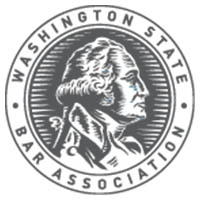
We win with tough defense - (206) 453-1800
Facing Third Degree Theft or Needing to know more about Shoplifting?
Shoplifting & Theft in the Third Degree
A Theft or Shoplifting charge can ruin your life! Taking a $2 item can cost you thousands of dollars, cause you to go to jail and prevent you from getting employment, housing and other services for the foreseeable future. If you have been charged with Shoplifting you may have options that can lessen the impact. To protect yourself you need to take action immediately; often before criminal charges are filed.
The terms Shoplifting and Theft 3 are often used interchangeably. Some county and county codes have a specific Shoplifting offense to cover items stolen from retail stores. Under Washington law, Third Degree Theft is the taking of goods valued at $750 or less. A Theft in the Third Degree conviction can result in 364 days in jail, a $5000 fine, 2 years probation and a number of other conditions. More importantly, a Theft conviction will make it nearly impossible to pass an employment background check, get a professional license, do volunteer work, get scholarships and more.
When you are arrested on allegations of Shoplifting two things usually happen, you are charged with a crime and the store starts an action for civil damages. The store can send you a bill (or Civil Demand Letter) for double the price of the merchandise (even if it was recovered in perfect condition), up to $600 in civil penalties, costs and attorney\'s fees. The typical demand for a $20 item is usually $200-$300 but, as you can see, it can be a lot more. The criminal process can start right away. You can be arrested at the store and booked into jail and held on bail. More often, the store\'s loss prevention officer or local police will take your information and release you. This does NOT mean you are off the hook. It means that the police reports will be forwarded to the local prosecutor who will decide whether or not to charge you with a crime. Because the Statute of Limitations (time the prosecution has to file charges) is 2 years, it can be months before you get charging information and court dates n the mail.
'If I pay the store will the charges go away?' This is probably the most common question I get from clients. The loss prevention folks usually just tell people that they will get something in the mail that they need to pay, with no other instructions. Since most people are released without being formally arrested, and no charges file yet, this can be confusing. The short answer is 'No.' Simply paying the civil demand will not have any affect on whether or not charges are filed. The store and the prosecutor are two separate entities and once the police receive reports of a crime they won't drop charges even if the store asks them to. However, the more accurate answer is 'It depends.' Many stores (or private parties) will agree to sign a Compromise of a Misdemeanor. Under Washington law, if the victim of Theft (or many other non-domestic violent misdemeanors) can sign a declaration that they have been compensated for all damages and would like the action dismissed. However, many stores (such as WalMart and others) will not agree to do this. Even if the store signs off on a Misdemeanor Compromise the judge has the discretion to deny the request and continue with the criminal case. Have a lawyer try to arrange a Civil Compromise for you. Do NOT try to do it yourself. You want to make sure you get everything done correctly to give you the best chance with the judge.
The store will often serve you with a No Trespass Notice in addition to the civil demand. The store has the right to ask you to not to return for any reason (other than race, religion, handicap, etc...) and for any length of time. Do NOT enter the property of the store until you are absolutely certain you have permission. Many national chains have facial recognition software and you will be arrested and charged with a new crime if you enter the store.
There are often options available besides a Misdemeanor Compromise and conviction. Depending on the facts of the case, the prosecutor, the judge, your attorney, criminal history and your actions after the arrest, you may be eligible for an alternative resolution. If you have no prior Theft or Shoplifting charges, some jurisdictions will dismiss the case if you complete a Theft Awareness class, pay back the store and sign a No Trespass agreement. It may also be possible to get the judge to agree to impose a deferred sentence (the conviction is vacated and dismissed after a certain amount of time, upon good behavior) or arrange a pretrial diversion with the prosecutor (the person charged agrees to do certain things, such as community service and stay out of trouble, and the prosecutor agrees to dismiss charges at a later date). These are the most common options, but no the only ones. A creative attorney can sometimes come up with other alternatives or win the case at trial.
If you enter someone's property with the intent to commit a crime you can be charged with Burglary (a felony). I have occasionally seen what is usually charged as a Shoplift or Theft charged as a Burglary if the person has been previously trespassed or has a history of theft convictions. This can result in prison time and a felony conviction and be just as devastating as a Theft or Shoplifting.
If you have been charged with or convicted of Theft you can clear your record. For a Shoplifting and misdemeanor theft conviction, you will have to wait for 3 years after the case is completely closed. To be eligible you cannot have any new charges or convictions, must have paid all costs and cannot have ever had a conviction vacated or expunged in the past. An arrest that does not result in a conviction can be removed for you record two years after the case is dismissed. The same conditions apply. Felony theft convictions can often be expunged as well, but the waiting times are longer. The problem in the age of computers is that once a Theft conviction becomes public information it gets recorded by lots of companies. It can be nearly impossible to clear all records of the convictions. This is why it is so important to hire an attorney who is experienced and effective at keeping Shoplifting and Theft charges off your record to begin with. If you have been charged with Shoplifting in the greater Seattle area, and would like to talk to someone about your options, please feel free to contact us.





